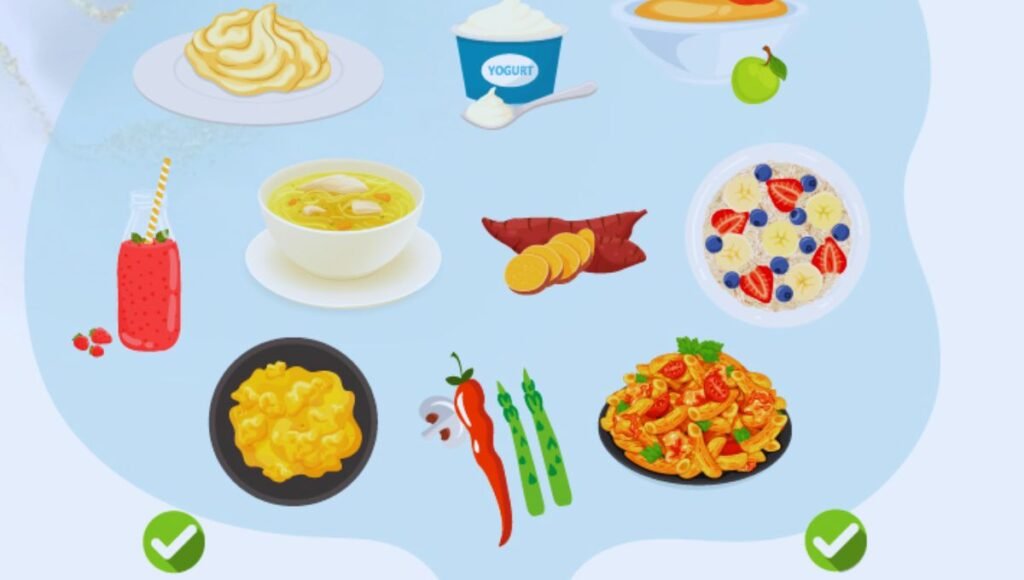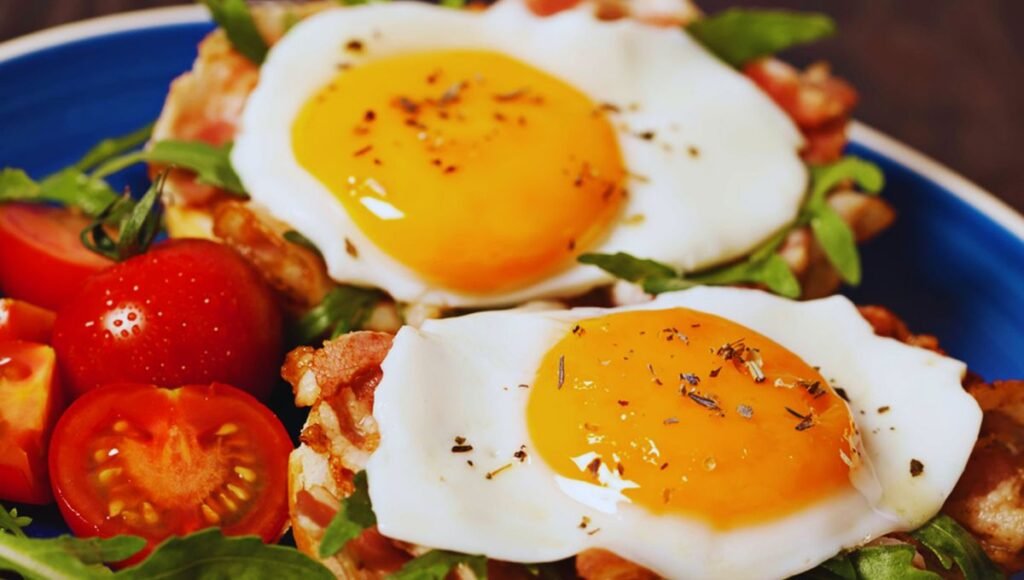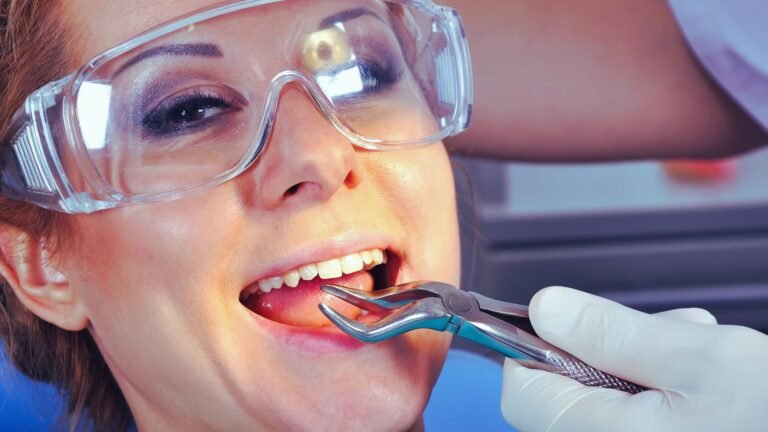Can I Eat Boiled Eggs After Tooth Extraction?
You might wonder if it’s safe to eat boiled eggs after you’ve had a tooth extraction. Boiled eggs are a great source of protein, essential for healing, and they’re generally soft enough not to disturb the extraction site. However, it’s important to think about the temperature and consistency of the eggs you consume.
Eating them lukewarm and ensuring they are not too hard can make a significant difference in your comfort and recovery. But how soon after the procedure can you start incorporating them into your diet, and are there other factors you should be aware of? Let’s discuss what you need to know to manage your post-extraction meals effectively.
Importance of Diet After Extraction

Maintaining a proper diet after tooth extraction is essential for your healing process. Immediately following your procedure, prioritize soft foods and liquids to minimize discomfort and facilitate healing. Integrating nutrient-rich soft foods like yogurt, applesauce, and smoothies can greatly impact your recovery speed and comfort level.
During the initial 24 to 48 hours, it’s important to avoid any foods that might disrupt the clotting process. This clot is essential as it protects the extraction site from infection and aids in the foundation of new tissue. Chewing hard or crunchy foods can dislodge this clot, leading to increased bleeding or a painful condition known as dry socket.
Instead, focus on maintaining hydration and nourishing your body gently. Liquids such as water, broth, and non-citrus juices are excellent for keeping you hydrated without causing irritation. Soft foods that require minimal chewing reduce the risk of mechanical irritation to the sensitive area and contribute to a smoother healing process.
As your mouth heals, you can gradually reintroduce more solid foods, always considering your comfort and the guidance provided by your dental professional. Remember, your diet isn’t just about managing pain—it’s a fundamental component of your overall healing process.
Benefits of Eating Boiled Eggs
Including boiled eggs in your diet after tooth extraction offers an excellent source of soft, high-quality protein that’s important for tissue repair. As you’re maneuvering through your recovery, it’s essential to choose foods that not only promote healing but also contribute to your overall health without causing discomfort.
Here’s why incorporating boiled eggs can be particularly beneficial:
- High in Protein: Eggs are a superior protein source, essential for muscle building and repair of tissues affected by the extraction procedure.
- Easily Consumable: Their soft texture makes them easy to chew and swallow, minimizing the risk of aggravating the surgical site.
- Nutrient-Rich: Boiled eggs are packed with vitamins and minerals that support immune function and overall health during recovery.
- Supports Weight Management: As a component of a balanced diet, eggs can aid in weight loss, providing satiety and reducing the urge for more frequent snacking.
- Convenient Option: They serve as a quick breakfast or a snack, which is especially useful when your daily routine is disrupted by recovery needs.
Best Practices for Consumption
To maximize the benefits of boiled eggs after tooth extraction, you should consume them when they’re at a soft consistency, ensuring minimal pressure on the surgical site. Soft foods like these are ideal as they require minimal chewing, which helps in preventing any stress to the area of surgery. It’s vital that you pay attention to the timing of consumption. Eating soft foods such as boiled eggs should ideally occur during the initial days post-extraction when the healing process is most delicate.
Incorporating boiled eggs into your diet provides a valuable source of protein, essential for tissue repair and healing. However, you must ensure that the eggs aren’t too hot or too cold, as extreme temperatures can irritate the extraction site. Opt for lukewarm eggs to maintain oral comfort and aid in recovery.
For alternatives that also minimize chewing and provide similar nutritional benefits, consider other protein-rich options such as yogurt or smooth cottage cheese. These alternatives complement the healing regimen by providing variety and preventing dietary monotony, all while supporting the best nutrition intake during your recovery period. Remember, the goal is to nurture the healing process with appropriate, nourishing choices.
Potential Risks to Consider

While boiled eggs are generally safe after a tooth extraction, you should be aware of potential risks such as choking or irritating the surgical site. Eating soft foods like boiled eggs is recommended, but it’s crucial to acknowledge how even these seemingly harmless foods can impact your recovery timeline and increase the risk of potential infections.
Choking Hazard: Despite their soft texture, improperly chewed egg pieces can pose a choking risk, especially if your swallowing reflex is compromised due to numbness from anesthesia.
Irritation to Surgical Site: Small pieces of egg can get stuck in the extraction site, potentially irritating the area and disrupting the healing clot.
Risk of Infection: Food particles, including eggs, stuck at the extraction site can act as a breeding ground for bacteria, heightening the risk of infection.
Delayed Healing: Irritation or infection at the surgical site can notably prolong your recovery process, extending discomfort and restrictions.
Allergic Reactions: Be mindful of any egg allergies that could worsen the situation, leading to swelling or other allergic responses that could complicate the healing process.
Remember to eat slowly and chew gently to minimize these risks, ensuring a smoother recovery.
Other Recommended Post-Extraction Foods
After a tooth extraction, it’s important to select foods that are soft, easy to chew, and gentle on the surgical site. In addition to boiled eggs, there are several other soft foods that can assist in your recovery while minimizing discomfort.
Smoothies are an excellent choice, as they’re not only soothing but also packed with essential nutrients. Make sure you consume them with a spoon rather than a straw to avoid dislodging the blood clot at the extraction site. You can customize your smoothies with yogurt, crushed ice, and ripe fruits like bananas and peaches for added flavor and nutrition.
Mashed potatoes are another fantastic option. They’re easy to prepare and you can enhance their nutritional profile by adding a bit of butter or milk. Similarly, applesauce and cottage cheese provide good sources of protein and are gentle enough not to irritate the wound.
Oatmeal and porridge also make for a comforting meal post-extraction. Just be certain they’re cooled to a warm temperature to prevent any discomfort.
Frequently Asked Questions
How Soon After Extraction Can I Eat a Boiled Egg?
You can eat soft foods like boiled eggs 24 hours after your extraction. They’re gentle on your healing gums and won’t disrupt the healing process. Always chew away from the extraction site.
Should I Peel the Egg or Cut It Into Smaller Pieces?
You should cut the boiled egg into smaller pieces to manage the texture more easily. This approach sidesteps the egg yolk debate by ensuring each bite is manageable and less challenging to chew.
Can I Add Salt or Spices to a Boiled Egg Post-Extraction?
You can add salt or mild spices to your boiled egg based on your flavor preferences. Opt for softer seasonings to accommodate your texture preferences and guarantee the presentation suits easy consumption.
Are Soft Scrambled Eggs as Safe as Boiled Eggs After Extraction?
Yes, soft scrambled eggs are as safe as boiled eggs post-extraction. Consider also egg salad, mashed potatoes, smoothies, and yogurt parfaits for gentle, nutritious options during your recovery period.
Is It Okay to Eat a Boiled Egg Cold After Tooth Extraction?
You can eat a cold boiled egg post-procedure. Egg temperature is essential; cold is safe. Make sure the egg’s preparation was hygienic and gentle on your healing site to prevent any complications.
Conclusion
To sum up, after your tooth extraction, incorporating boiled eggs into your diet can be beneficial due to their soft texture and high protein content. Make sure they’re not too hot or hard to avoid discomfort at the surgical site.
Remember to eat gently and choose other soft, nutritious foods to help with your recovery.
Always follow your dentist’s advice and monitor your body’s response to promote a smooth and quick healing process.
